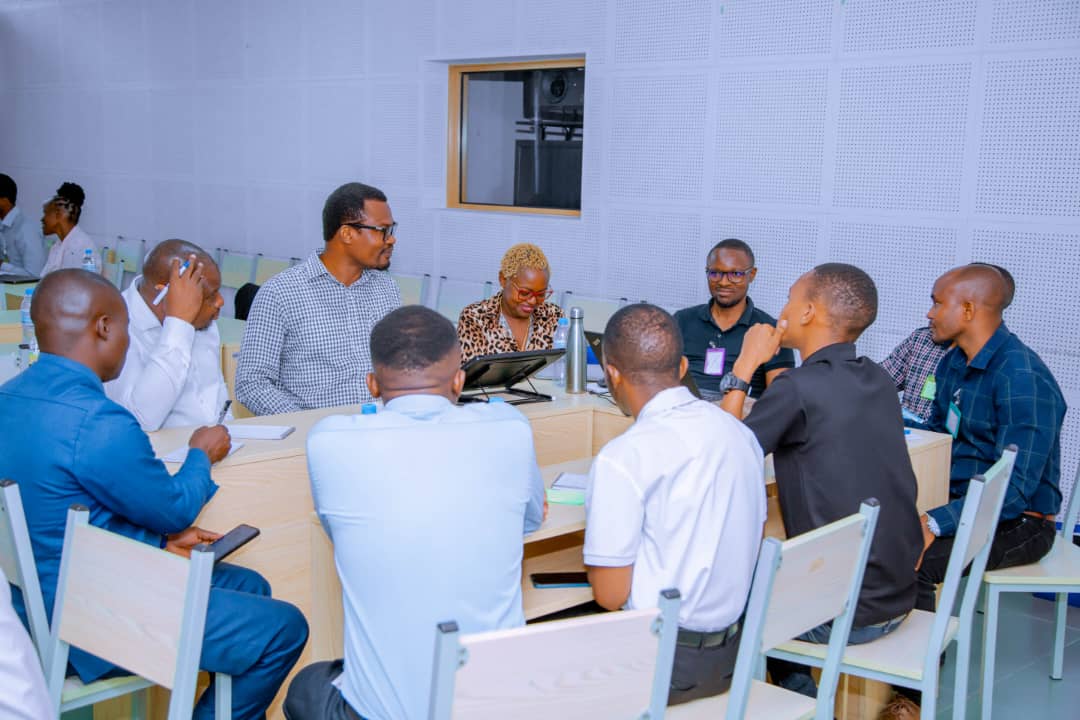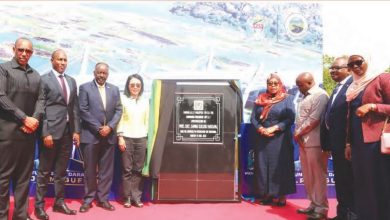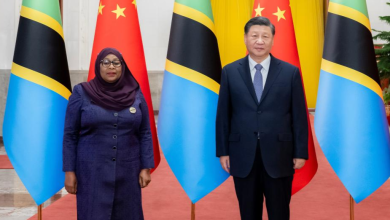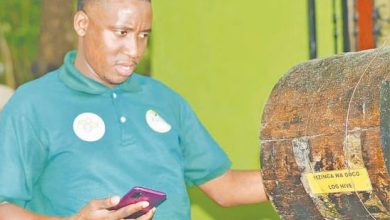Citizen science model to empower farmers, boost aafer agriculture

Recently, in a bold step towards transforming Tanzania’s agricultural landscape, the Sweden Alumni Network of Tanzania (SANTz) and the Tanzania Agrobiologicals Stakeholders Network (TASN), in partnership with Sweden in Tanzania, launched a groundbreaking initiative that places farmers at the centre of agricultural innovation. Through a model known as citizen science, the initiative aims to empower communities to take an active role in gathering and sharing data that informs the use of safer, more sustainable agricultural inputs namely, biofertilizers and biopesticides, collectively referred to as agrobiologicals.
The launch took place at a dynamic workshop held at the University of Dar es Salaam on October 11, drawing together a diverse group of stakeholders from across the agricultural value chain. Researchers, policymakers, farmers, extension officers, and agribusiness representatives collaborated to design a practical framework for integrating citizen science into national agricultural development strategies.
At the heart of the initiative is a simple yet powerful idea: science should not be the preserve of laboratories and academic journals alone. Instead, it should be accessible, inclusive, and responsive to the realities of those who produce our food the farmers themselves.
Democratizing agricultural science through participation
Citizen science is a participatory research approach that enlists ordinary people and, in this case, smallholder farmers as active contributors to the scientific process. These participants collect data, observe trends, test agricultural practices, and feed this information back to scientists and policymakers. This two-way flow of knowledge not only validates farmers’ experiences but also helps scientists generate contextually accurate data that reflects local conditions.
Dr Aneth David, Chairperson of SANTz and Co-founder of TASN, emphasized the importance of this approach during the opening of the workshop.
“Our goal is to make science accessible and practical,” she said. “By involving farmers directly, we create data that reflects real-world farming realities and supports both safer food and sustainable productivity.”
This is particularly relevant in Tanzania, where over 65% of the population depends on agriculture for their livelihoods, and where the effects of climate change, soil degradation, and chemical overuse are placing increasing pressure on food systems.
Unlocking the potential of agrobiologicals
Agrobiologicals products derived from natural sources such as beneficial fungi, bacteria, and plant extracts offer a promising alternative to synthetic fertilizers and pesticides. Used correctly, they can enhance soil fertility, suppress pests, and promote plant growth with minimal environmental harm. However, in Tanzania, these inputs are still underutilized, primarily due to a lack of awareness, inconsistent product quality, and limited research on their performance under local conditions.
The new citizen science initiative seeks to address these gaps by enabling farmers to test and evaluate agrobiological products on their own farms, under real conditions, and to share the results with researchers, regulators, and other farmers.
Experts from the Tanzania Horticultural Association (TAHA) presented case studies during the workshop, showcasing how some Tanzanian farmers have already started adopting biological control agents—such as Trichoderma fungi and Bacillus-based bio-pesticides—to combat crop-damaging pests like whiteflies, aphids, and armyworms. These farmers have reported healthier crops, reduced reliance on synthetic chemicals, and better market access due to reduced pesticide residues.
TAHA also warned of the escalating threats posed by climate change including erratic rainfall, the emergence of new crop diseases, and pest outbreaks and called for more widespread adoption of agrobiologicals to build climate-resilient farming systems.
Connecting farmers, science, and policy
One of the critical challenges in agricultural development is the disconnect between research findings, policy decisions, and what actually happens on the ground. Dr Mesia Ilomo, Co-founder of TASN, believes that citizen science offers a way to close that gap.
“When knowledge is shared across the chain, from the field to the policy desk, decisions become more grounded and inclusive,” Dr Ilomo said. “Farmers bring firsthand experience. Researchers bring methods. Policymakers bring scale. Together, we can build a food system that works for everyone.”

The workshop also served as a platform for government institutions and regulatory agencies to engage in the design of the citizen science model. Participants explored how farmer-generated data could be standardized, validated, and integrated into national agricultural databases, helping to inform policy reforms, product registration, and market surveillance for agrobiological products.
Sweden’s commitment to sustainable innovation
Sweden in Tanzania, represented at the event by senior officials from the Embassy of Sweden, reaffirmed its commitment to supporting inclusive innovation, green growth, and evidence-based development. The Embassy emphasized that citizen-driven research aligns with Sweden’s broader strategy for international development cooperation, which prioritizes sustainability, gender equality, and local empowerment.
Sweden has long supported agricultural development in Tanzania through projects that promote smallholder resilience, climate-smart agriculture, and sustainable agribusiness. This new initiative adds to that legacy by advancing a model that is both participatory and scalable.
Towards implementation: A roadmap for action
One of the key outcomes of the workshop was the development of a roadmap for piloting the citizen science model in selected farming regions of Tanzania. The pilot phase will focus on: Farmer training in data collection, field observation, and safe use of agrobiologicals; Crowdsourcing data through mobile-based platforms and community meetings; Collaboration with local extension officers and agricultural researchers; Integration of farmer-generated data into existing national agricultural information systems
Organizers believe that this approach will not only enhance agricultural decision-making but also contribute to consumer safety by ensuring more transparency in the production process.
“We are planting seeds for a new kind of agriculture—one where farmers are co-creators of knowledge, not just beneficiaries,” said Dr David.
As Tanzania works to feed a growing population while preserving natural ecosystems, initiatives like this offer a blueprint for how collaborative science, grassroots participation, and policy innovation can work hand-in-hand. By empowering farmers, especially smallholders, to participate in research and decision-making, the country moves closer to achieving food security, environmental sustainability, and inclusive economic growth.
With growing momentum and support from local and international stakeholders, the citizen science approach is poised to play a transformative role in Tanzania’s agricultural future—making science work with, not just for, the people.






I am a student and researcher in agriculture and agribusiness in Ghana. I want to do a research in some African countries including Tanzania. I am therefore interested in news on agriculture from Tanzania and will be delighted to be updated from time to time on relevant information concerning agribusiness and agricultural financing.